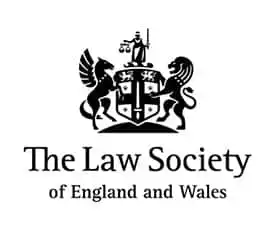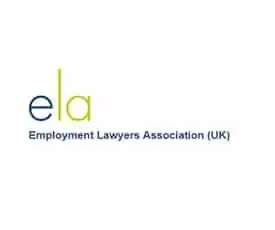
Returning to Work after Sickness
We’re a team of calm, confident and cost-conscious employment lawyers. Call us today on 01793 296581
Talk to a lawyer todayReturning to Work after Sickness
It is crucial that employers have a process in place when any of their employees return to work from sickness absence. Returning to work after a period of leave is a critical phase for employees and employers. This process requires careful consideration of employment laws to ensure that any procedure applied is both fair and compliant with UK regular regulations.
When employees return to work after an absence, they should speak with their employer. An initial meeting is important to ensure that they are ready to return and that they have any support needed to facilitate the proper performance of their role.

Returning to Work after Sick Leave
If employees are away from work for seven days or less, there is no requirement for those employees to provide a fit note to their employer. However, if the absence exceeds four consecutive working days, then a fit note may be required by the employer and the employer can ask them to confirm the reasons why they have been off sick. For periods which are less than four consecutive working days, individuals may be required to provide self-certification. This is where the employer and employee agree that the individual simply confirms themselves, the reason for the absence and they may fill in a form or send details of their sick leave by e-mail to the employer.
It is not a legal requirement to conduct a return-to-work meeting, however, a conversation as soon as possible after an employee has returned to work is best practice. The main pieces of legislation governing sick leave and return to work in UK employment law include the Employment Rights Act 1996, the Health and Safety at Work Act 1974 and the Equality Act 2010. The Employment Rights Act 1996 offers protections against unfair dismissal as well as the right to Statutory Sick Pay. Statutory sick pay is the minimum payment that individuals are entitled to in the event that they have undertaken an absence of at least four consecutive working days due to illness. Statutory sick pay is payable for up to 28 weeks; however, certain employers will offer more generous entitlements than this, including full pay for prescribed periods of absence.
Employee Returning to Work after Sickness
The Equality Act 2010 is a piece of legislation which governs the rights relating to those employees who have a disability in accordance with that Act. If an employee is disabled, their employer should discuss whether there are any reasonable adjustments that can be made to support the individual’s return to work. An employer should also consider any underlying problems which may have been causing the absence and could be related to the disability. These could include work-related stress or an illness or impairment that amounts to a disability in accordance with the Equality Act 2010. The Equality Act 2010 prohibits discrimination based on a disability and requires all employers to consider reasonable adjustments to facilitate the return to work of employees who have disabilities. These adjustments could include physical adjustments to the workplace itself, alterations to working hours, or even changes to the duties of the individuals concerned.
The Health and Safety at Work Act 1974 requires employers to ensure that the health, safety, and welfare of their employees are protected. This Act prescribes that employers must ensure that employees returning from sick leave are not subjected to conditions that may exacerbate their illness or impairment. All employers are required to provide a safe working environment for all their members of staff.
It is crucial that there is clear and ongoing communication between the employer and employee upon the return to work. Employers should endeavour to maintain contact during an employee’s absence to offer support and if necessary, to obtain further information concerning the illness and the individual’s expected return date. It may also be necessary for an employer to consider commissioning an occupational health expert report to provide further information in relation to the prognosis of the illness and any reasonable adjustments that should be considered upon the individual’s return to work.
Sickness absence is a tricky area for employers to navigate. When in doubt, it is imperative that employers seek legal advice regarding the required process. Failure to carry out the correct process can give rise to claims of both constructive unfair dismissal and/or disability discrimination, contrary to the Equality Act 2010. Discrimination claims carry unlimited damages risks and employers should therefore proceed with caution.
What Can We Help With?
- Settlement and compromise agreements
- Unfair dismissal advice
- Employment tribunal advice
- Discrimination claims
- Redundancy advice
- Breach of contract
- Advice on maternity and paternity leave
- Book A Free Consultation
- Understand Your Situation
- Know Where You Stand
Our 3 Step Process
Book A Free Consultation
This complimentary consultation allows our employment solicitors to understand more about your specific situation so we can provide you with the best advice possible.
We’ll lay out your options and will advise you upfront of any costs involved.
Our 3 Step Process
Understand Your Situation
Understanding your unique situation will help us to understand how we can help you move forward with more clarity.
Although everyone’s situation is unique, we’ve most likely dealt with similar scenarios before.
Our 3 Step Process
Know Where You Stand
Whether that’s pursuing unfair dismissal, negotiating a larger settlement agreement, starting a claim for discrimination or simply having peace of mind.
We’ll help you feel clearer and more settled.

0 / 127
5 star reviews

0 / 50
5 star reviews
Yell.com

0 / 231
5 star reviews
ReviewSolicitors
Client Feedback
We have formed many long-lasting relationships by listening to feedback and understanding our clients’ needs. Our employment law advice provides exceptional care and tailored support.
“DPH Legal has provided expert advice on all aspects of employment law. When advising us on any matters there was always a choice of action that could be taken and clear instruction on risks and options open to the company.”
Tracey Rees
“Outstanding I fully recommend DPH Legal to anyone who needs legal representation or advice for even the most contentious and upsetting disputes. David Harris and the whole team are second to none, and they give fact-based advice to get the best outcomes for the client.”
SilverPot63
“From beginning to end they were a pleasure to deal with. They were extremely efficient and the lawyers at DPH Legal were without doubt experts in their field. They conduct themselves with impeccable professionalism and remain in constant communication throughout.”
Behrooz Vahedifar
Award Winning Service
Our award-winning legal services are recognised for excellence, professionalism, and client success. We provide tailored strategies with a focus on precision, integrity, and results.
Contact a Lawyer Today
Davidson House,
Forbury Square,
Reading, Berkshire,
RG1 3EU
0118 914 5622
info@dphlegal.com









